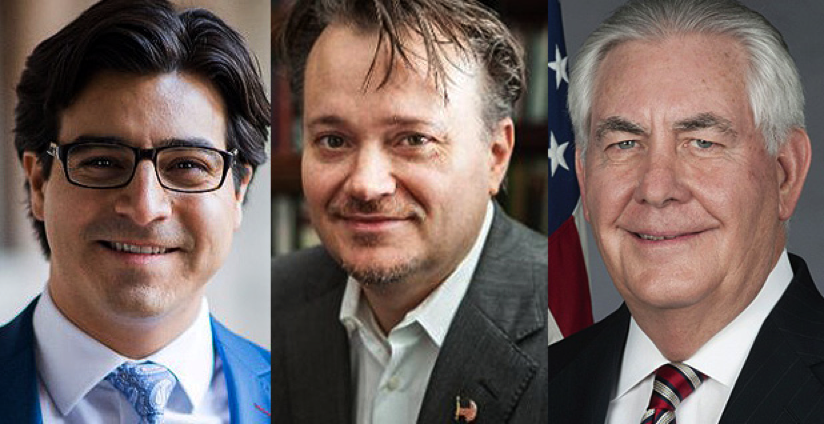As originally published in E&E News by: Hannah Hess, E&E News reporter

The head of the non-profit arm of a conservative energy group sent a memo today to key Trump administration officials who were said to favor the Paris climate agreement.
Citizens for Responsible Energy Solutions Forum Director of Policy and Advocacy Charles Hernick advised senior members of Trump’s team, including White House energy adviser George David Banks, “to lead at the international level and assure that state-level actions are market efficient and promote consumer choice.” The Forum is tied to Citizens for Responsible Energy Solutions, also known as CRES, which advocates for Republican action on clean energy.
In the memo — also sent to Secretary of State Rex Tillerson, U.N. Ambassador Nikki Haley, Treasury Secretary Steven Mnuchin and Energy Secretary Rick Perry — Hernick lays out four tenants for climate policy in the wake of President Trump’s decision to initiate withdrawal from the Paris accord. Hernick urges the U.S. to retain its membership in the U.N. Framework Convention on Climate Change so negotiators have a seat at the table for future rounds of discussion. He suggests ways to make re-entry into the Paris framework “more palatable,” such as reforming U.N.-led financial institutions.
Hernick, an international energy consultant and former northern Virginia congressional candidate who serves as director of policy and advocacy for the group, put forth similar recommendations last month in a memo advising the administration to stay in the deal while revising its terms (E&E Daily, May 23).
Today’s memo stressed the need to prioritize clean energy research and development, especially in infrastructure and trade policy. Hernick noted businesses are more likely to invest when there is certainty about costs. Unlike conservatives who advised the Trump administration to weaken the pledge to cut emissions 26 to 28 percent below 2005 levels by 2025 and replace it with a laxer goal, CRES Forum has argued the U.S. is on track to meet the Obama administration commitment.
Hernick highlighted two options for doing so, while relying on “voluntary market forces as opposed to establishing a cap on greenhouse gas emissions.”
Those include helping to build a nationwide framework for carbon trading or breaking up state-level energy monopolies so that U.S. consumers have more choices for electricity.
CRES has a close tie to Trump’s presidential campaign. In April, the group hired a top Florida Republican fundraiser who led state-level efforts for the president in 2016 (Greenwire, April 26).
